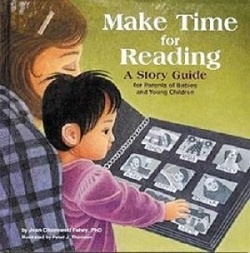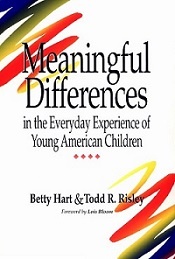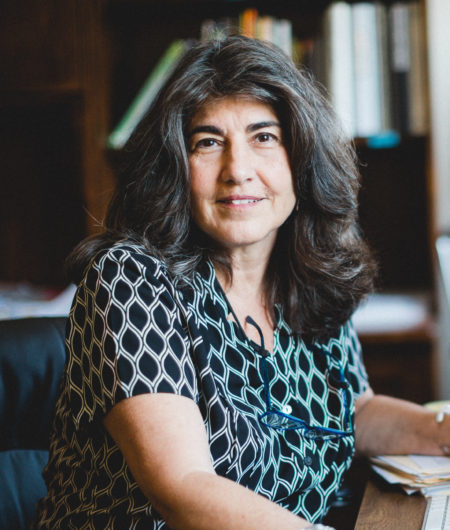The Best Baby Shower Gift: Books!

I recently received an invite to a baby shower, and as I packed a gift bag of books for the expectant parents, it reminded of the terrific work that the non-profit organization of medical providers, Reach Out and Read, has been doing since 1989. They promote early literacy and school readiness in pediatric exam rooms across the country by giving new books to children and advice to parents about the importance of reading aloud.
Books for babies and toddlers are the only gift I consider giving at new baby celebrations because reading to young children is more valuable than anything else you might buy in a baby store.
Research shows that exposure to lots of spoken language, starting as early as a month old, develops a sense of language sounds, words, and syntax (word order) that are the most basic foundation for learning how to read once in school. Research also shows that children from low-income families hear 30 million fewer words than their more affluent peers by the time they are 3 years old. As a result, these children are at the highest risk for reading failure as they enter kindergarten (Hart & Risley, 1995; Fernald, Marchman, & Weisleder, 2013). Reading aloud to these children goes a long way to closing this gap.
In addition to the exposure to rich language, sitting close to an adult who cares and loves you while they read aloud creates an environment where children develop positive images about reading.
A colleague from Massachusetts, Jean Fahey, has self-published a terrific book that parents can read with their children called “Make Time for Reading”. It is a picture book about how one little girl gets ready for a lifelong adventure of reading. A number of corporate sponsors, grants and foundations have donated the book to parents and newborns. After reading this book, it has become a staple of my gift bags of books.
Here are some resources related to research about early language exposure:
 The Early Catastrophe: The 30 Million Word Gap by Age 3, by Betty Hart and Todd Risley: article in American Educator.
The Early Catastrophe: The 30 Million Word Gap by Age 3, by Betty Hart and Todd Risley: article in American Educator.
Hart, B. & Risley, T.R. (1995) Meaningful Differences in the Everyday Experience of Young American Children. Baltimore, MD: Paul H. Brookes Publishing.
Fernald, A., Marchman, V. A. , & Weisleder, A. (2013). SES differences in language processing skill and vocabulary are evident at 18 months. Developmental Science (16) 2, pp. 234-248.

 Joan Sedita is the founder of Keys to Literacy and author of the Keys to Literacy professional development programs. She is an experienced educator, nationally recognized speaker and teacher trainer. She has worked for over 35 years in the literacy education field and has presented to thousands of teachers and related professionals at schools, colleges, clinics, and professional conferences.
Joan Sedita is the founder of Keys to Literacy and author of the Keys to Literacy professional development programs. She is an experienced educator, nationally recognized speaker and teacher trainer. She has worked for over 35 years in the literacy education field and has presented to thousands of teachers and related professionals at schools, colleges, clinics, and professional conferences.
Great summary and wonderful gift idea. Thanks for posting.
Joan, I always bring books and a children’s music CD as gifts. Those little onesies and rattle toys are only good for so long, but books last a lifetime! Joan, will you post your list? My personal favorites to gift…
Goodnight Moon, by Margaret Wise
Brown Brown Bear, Brown Bear, What Do You See, by Bill Martin
I’ll Love You Forever, by Robert Munsch